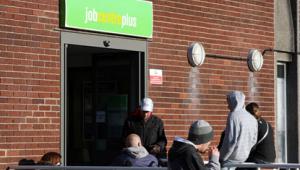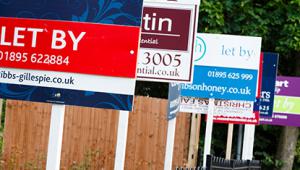By Richard Johnstone | 14 June 2011
Poorer households have experienced a higher level of inflation during the recession, the Institute for Fiscal Studies has found.
The research, funded by Consumer Focus, found that inflation for the poorest fifth of UK households averaged 4.3% between 2008 – when the recession hit in the middle of the year -– and 2010, when growth resumed.The rate experienced by the richest fifth was more than a percentage point lower, at 2.7% a year, over the same period.
The researchers used the methodology of the Retail Prices Index measure of inflation to calculate the differences. The RPI averaged at 2.7% in the three years, but leapt to 4.3% for poorer households, who spend on average more than twice as much on energy as richer households as a percentage of their income.
The report finds that pensioners and those on benefits were hit hardest, with some experiencing an average inflation rate as high as 4.6%.
Richer households benefited from low interest rates during the recession, which kept down the cost of mortgage repayments, one of the largest outgoings in percentage terms for the top fifth.
IFS research economist Peter Levell said: ‘Over the past few years, relative price changes have tended to hit poorer and older households harder.
‘Of course this pattern may well change in the future. But it does mean that poorer households will have fared worse over the period of the recession than poverty and inequality statistics – which don’t account for these differential inflation rates – would suggest.’
The report, The spending patterns and the inflation experience of low-income households over the past decade, shows that in 2008, for example, the RPI measure of inflation was 4.0%, but fuel prices rose by 18.9%. This rise in energy costs added 1.8 percentage points to the average inflation rate experienced by the poorest 20% of households, but just 0.8 percentage points to the rate for the richest 20%.
The IFS also warns that gas and electricity price rises might lead to further inequalities in the future.
Last week, Scottish Power announced a price rise, which is likely to be matched by the other members of the so-called ‘Big Six’ energy companies.
If, as the Department for Energy and Climate Change predicts, electricity prices increase by around 15% and gas prices by around 20% between 2010 and 2015, poorer households might heat their homes less, the report warns.
Commenting on the report, Unison general secretary Dave Prentis said: ‘Poorer households have already forked out so much more than the rich – and now the government’s shaky economic strategy is plunging them into further misery.
‘The government
must rethink its economic plan – the cuts are clearly targeting those who can
least afford it.’
Inflation figures released today by the Office for National Statistics show that both the Retail Prices Index and the Consumer Prices Index were unchanged for the month of May. RPI remained at 5.2%, while the CPI measure was static at 4.5%.
The Centre for Economics and Business Research said that the CPI measure remains more than double the Bank of England’s 2.0% target.
CEBR managing economist Charles Davis said the price rises being announced in the energy sector will push inflation higher, but expects the Bank of England’s Monetary Policy Committee will ‘remain focused on the persistent weakness in the UK’s economic recovery’, and defer any rise in interest rates until at least the first quarter of next year.





















